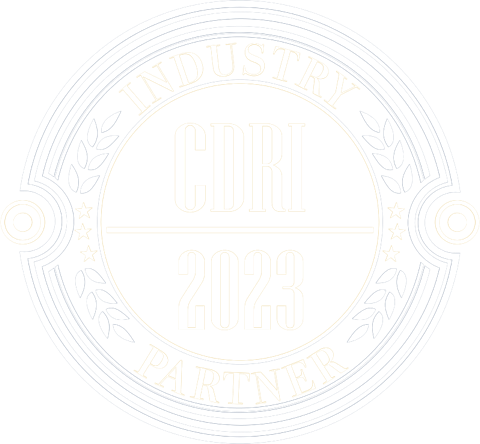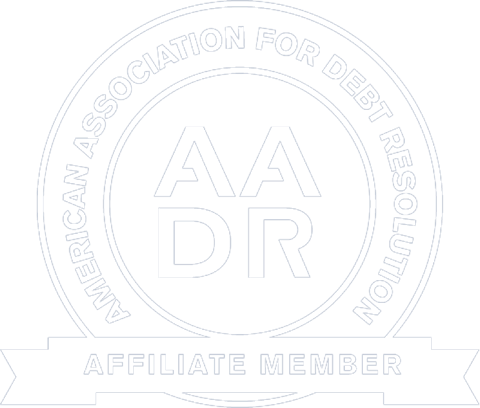What Type of Loan is Best
The basics of loans explained


By Renauld Smith
Industry Veteran & Executive Director of IAPDA
Most of us will consider a loan at some point in our lives whether it’s to purchase a car, a home or to fund a new business. There are many different types of loans so it can be very confusing for the consumer. Below are the different types of loans available.
What is a Loan?
A loan is when money is given to another party in exchange for repayment of the loan principal amount plus interest. Lenders will consider a perspective borrower's income, credit score, and debt levels before deciding to offer them a loan.
Secured vs Unsecured Loans
Secured loans are debt products that are protected by collateral. This
means that when
you apply for a secured loan, the lender will want to know which of your assets you plan
to use to back
the loan. The lender will then place a lien on that asset until the loan is repaid in
full.
Secured personal loans may be preferable if your credit isn't good enough to qualify for
another type of
personal loan. In fact, some lenders don't have minimum credit score requirements to
qualify for this
type of loan. On the other hand, secured personal loans are riskier for you, because you
could lose your
asset.
Unsecured loans don’t require borrowers to pledge assets, such as a
house or car, as
collateral for the loan. These loans are approved and granted based on the borrower’s
credit score,
income level and amount of outstanding debt.
Unsecured loans are based solely on creditworthiness, so lenders need to ensure you will
be able to
fulfill the loan agreement. Sometimes referred to as ‘signature loans’ as all you need
to do is
sign.
Revolving Credit vs Installment Credit
Revolving credit extends borrowers a line of credit with no determined end time, and they can spend up to their assigned credit limit. Common examples of revolving credit include credit cards, home equity lines of credit (HELOCs), and personal and business lines of credit.
The biggest example of revolving credit is a credit card; the cardholder routinely makes charges, pays them off whether in full or partially, makes more charges and so on. The amount of money the borrower uses within their credit limit is up to them and there is no set monthly payment plan. The borrower has the option to pay their balance off in full each month or they can pay just the minimum and carry, or “revolve,” their balance to the next month.
Installment credit is a loan that offers a borrower a fixed, or finite, amount of money over a specified period. This way, the borrower knows upfront the number of monthly payments, or “installments,” they will need to make and how much each monthly payment will be.
Installment loans include auto loans, student loans, personal loans and mortgages. The repayment periods for such installment loans can last months or years, depending on the terms of the loan. You can opt for smaller monthly payments by agreeing to pay for the loan over a longer time frame, or you can make larger payments over a shorter term. The ability to choose your repayment schedule is a helpful feature of an installment loan.
Applying for a Loan
The best place to start when applying for a loan is to know your credit score. Any score over 720 is excellent. Conversely, anything under 500 is poor. Most loan programs need scores over 700, with some going as low as 650. Paying debt on time alone is not enough for a high score. Payment history, availability of balance and number of open accounts are all important in determining your score.
Debt-to-income ratio is a very important factor as this will allow your lender to determine if you’ll be able to afford your payments. You can calculate your DTI by taking your total monthly debt payments and divide that by your total monthly gross income and multiply that number by 100. DTI does not affect your credit score.
Having a DTI that’s less than 36% puts you in a great position. If your DTI is between 42-50% it could be challenging to get approved, most lenders are good with a DTI of 41%. Below 41% and a larger down payment would be necessary. A DTI that’s greater than 50% usually indicates that you’re having financial issues and may even be approaching bankruptcy.
Click THE BELOW LINK TO CALCULATE YOUR ACCURATE DTI:
Debt Options AnalysisType Of Loan
Personal Loan
Personal loans are a type of installment loan. That means you borrow a fixed amount of money and pay it back with interest in monthly payments over the life of the loan — which typically ranges from 12 to 84 months. Once you’ve paid your loan in full, your account is closed. If you need more money, you have to apply for a new loan.
Common Uses for a Personal Loan:

Get a Better Rate
Save money on interest with a lower rate

Debt Consolidation
Simplify with an affordable fixed rate single monthly payment

Credit Card Consolidation
Know when your loan will be paid with one monthly payment while avoiding penalties and late fees

Unexpected Expenses
Cover emergency costs such as medical bills and travel expenses
Need a loan? Click the link below for a no hassle rapid pre-approval decision. No cost to apply and no commitment required. Apply for Loan
Online Application
Simple and secure online loan application
Quick Pre-Approval Process
Get a loan decision in seconds!
Flexible Repayment Options
Decide between a shorter or longer repayment schedule
Auto Loan
An auto loan allows someone to borrow money to purchase a car or truck. Auto loans are usually simple-interest loans that are to be paid back over a period of typically three or five years.
A car is often the second-largest purchase someone will make aside from their home. Auto loans help make vehicles that often-cost tens of thousands of dollars more affordable by breaking up the high cost into monthly payments that work with different borrower's budgets.
Mortgages
A mortgage is a loan you get from a lender to finance a home purchase. When you take out a mortgage, you promise to repay the money you’ve borrowed at an agreed-upon interest rate.
The home is used as collateral. That means if you break the promise to repay your mortgage, the bank has the right to foreclose on your property.
Home Equity Loan
A home equity loan (sometimes called a HEL) allows you to borrow money using the equity in your home as collateral.
Equity is the amount your property is currently worth, minus the amount of any existing mortgage on your property. You receive the money from a home equity loan as a lump sum. A home equity loan usually has a fixed interest rate–one that will not change. If you cannot pay back the HEL, the lender could foreclose on your home.
Student Loan
A student loan is a lump sum of money that a student receives from the federal government, their state government, or a private company, which they can use toward tuition or other school expenses. However, they must pay that money back after graduation, plus interest.
To increase your chances of qualifying for a personal loan you may consider adding a cosigner with good credit. This could be the answer to getting approved and/or getting a better interest rate. If you default your cosigner will be responsible for the loan and the debt will be reported on their credit.
Debt Consolidation Loan
A debt consolidation loan is a personal loan you can use to pay off high-interest debt, typically credit cards.
Consolidating debt allows you to use just one loan to pay off one or more credit card balances, which can simplify your repayment plan. And, depending on how much debt you have and the loan's terms, it could also save you time and money.
Small Business Loans
Small business loans give business owners access to capital to invest their business. The funds can be used for many different purposes including working capital or improvements including renovations, technology and staffing, business acquisitions, real estate purchases and more. When a bank is assessing if you are eligible for a loan and how much debt your business can afford, they look at many different factors such as the condition of your business, the available collateral, your cash flow and your character.
Credit Builder Loans
If you’re approved for a credit-builder loan, the bank will deposit the entire loan amount into an interest-earning savings account. You’ll make a fixed monthly payment for a set period and receive the loan proceeds (minus applicable fees) at the end of the loan term.
A credit-builder loan is designed to help you build credit from scratch or improve your credit health. It’s ideal for individuals who have bad credit or no credit at all and have trouble getting approved for credit cards or traditional loan products.
You’ll most likely get a loan from $200 to $2,000, payable in six to 24 months. The monthly payments are also usually affordable, but there’s another key advantage for credit newbies and credit-challenged consumers — the ability to potentially build credit while saving money.
Loans to Avoid
There are some loans that have high interest rates coupled with unrealistic repayment terms that could be detrimental to your finances. These loans are beneficial for the borrower and should be avoided.
Cash Advance Loans - Cash advance loans are still significantly more expensive than traditional personal loans, or even credit cards. Depending on the lender, your cash advance loan could have an APR of 299% or more.
Car Title Loans - You’ll pay significantly more in interest with a title loan than with a traditional personal loan. It’s not uncommon for car title loans to have APRs in the triple digits.
More than that, though, you’re securing the loan with one of your most important assets: your car. If you were to default on your title loan, the lender could take ownership of your vehicle.
Payday Loans - Most payday loan lenders don’t have strict credit- or income-based qualifications, so they often loan money to people who may struggle to repay the debt. Additionally, these loans are notoriously expensive.
While most states cap the interest that can be charged per $100 borrowed, this is usually in the range of $10 to $30. Calculated on an annual percentage rate basis (APR) – the same as is used for credit cards, mortgages, auto loans, etc. – that APR ranges from 391% to more than 521% for payday loans.





